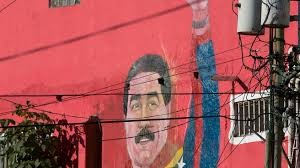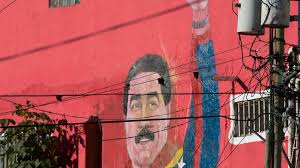 Venezuelan President Nicolas Maduro’s socialist government decreed on Friday (January 15) a 60-day “economic emergency” for the recession-hit OPEC nation reeling from low oil prices and a sputtering state-led economic model.
Venezuelan President Nicolas Maduro’s socialist government decreed on Friday (January 15) a 60-day “economic emergency” for the recession-hit OPEC nation reeling from low oil prices and a sputtering state-led economic model.
The government also published the first macroeconomics data for more than a year, showing GDP dropped in the third quarter while inflation surged.
The decree, read by new economy vice president Luis Salas and to be debated next week by parliament, did not mention any major policy changes such as a widely-rumored currency devaluation or a hike in the price of heavily-subsidized fuel.
“I decree Article One, an economic state of emergency across the entire national territory in conformity to the Bolivarian Constitution of Venezuela and its judicial order so that the executive (branch) makes use of his powers to adopt opportune measures to allow it to deal efficiently with the exceptional and extraordinary situation in which the Venezuelan economy currently finds itself,” Salas said.
“This will allow the population to be assured of their full rights and free access to fundamental goods and services and, at the same time, will mitigate the effects of this inflation that was induced due to speculation of the fictitious value of currency, the sabotage on the systems of the distribution of goods and services. Additionally, these measures will counter the consequences caused by the war on oil prices that has achieved the current international geopolitical volatile situation that has generated a grave economic crisis,” he added.
Maduro, a former bus driver and foreign minister who won election to replace Hugo Chavez in 2013, has stuck to his mentor’s policies of strict currency and price controls.
But critics say it is time to change a failed model.


















